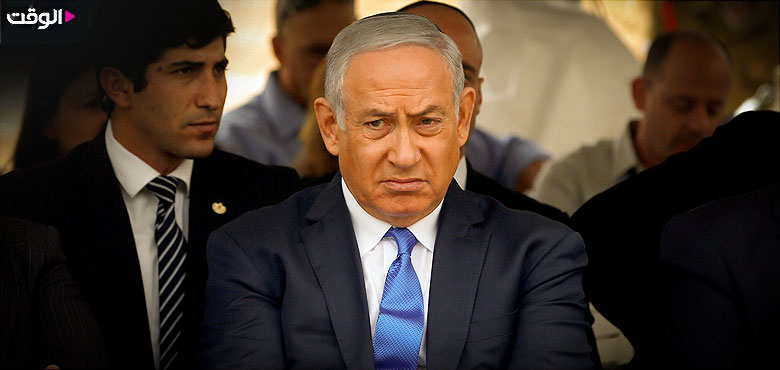Alwaght- Last week, Israeli regime's spokesman announced the plan to hold an early election in April next year. The news came after a meeting of the leaders of coalition parties who agreed to disband the parliament.
The cabinet cited differences within Netanyahu's coalition over a new military conscription bill affecting exemptions for ultra-Orthodox Jews as the main reason for the early ballot. But the decision to dissolve the parliament has deeper reasons, mainly linked to the post-2015 regional and current Israeli developments.
Parties' coalition in Israeli elections
After the previous election, which was announced following a clash over the budget, the political parties coalesced under a new alliance to gain further seats. Benjamin Netanyahu and his party Likud's assumption was that with an inclusive coalition they could win the biggest support within the body of the Israeli community and Knesset to give Tell Aviv bigger potentials to beat security and economic problems it is dealing with.
To this end, the hardline Likud party, with 30 seats, allied with Kulanu (10 seats), Degel Ha Torah (6 seats), Shas (7 seats), The Jewish Home (8), and Yisrael Beiteinu (5) to collect 66 seats out of 120 Knesset seats. The rival front, adopting a moderate approach in politics, failed to gain a majority to form a government. Netanyahu and his party were optimistic that propagation of hardline nationalism, settlement expansion, and adoption of an aggressive foreign policy will introduce a unity inside the Israeli regime that will cover up the economic troubles.
Next steps after forming cabinet were conducting airstrikes against Syria, a propagandist campaign against Iran nuclear program, and pressuring Washington to move its embassy to Al-Quds (Jerusalem) from Tel Aviv. But even these measures did not provide a solution to root problems Netanyahu cabinet and the Israeli community were facing. Netanyahu strategy even failed to distract the Israeli public opinion from the domestic challenges.
Netanyahu cabinet's internal challenges
In mid-November, the Israeli Defense Minister Avigdor Lieberman resigned in protest to a ceasefire Netanyahu reached with Hamas in Gaza Strip. Netanyahu worked hard to justify the truce, saying that due to a secret matter he could not tell the media why he reached the ceasefire with the Palestinians in Gaza. Lieberman resignation and Netanyahu’s failure to justify his government’s inefficiency bear witness to the end of the momentum of Israeli hardline politics.
With his resignation, Lieberman sought to pin the government's inefficiency on the Likud party, not all of the coalition body. Soon after Lieberman, Minister of Immigration and Absorption Sofa Landver stepped down from her post. She repeated Lieberman drive for her resignation. But the real reason was her inability to implement the immigration policies which were faced obstacles under Netanyahu's belligerent policies and hike of living costs in the occupied territories. Netanyahu underwent corruption investigation for the bribery during the purchase of German-made new submarines. He also was charged with receiving $1 million in funding for his election campaign from a corrupt French businessman. Add to this, the case of his wife, Sara Netanyahu, who is accused of squandering some 99,000 of the government money for personal use. Netanyahu corruption charges led to demonstrations against him, with his popularity plunging to record low. These developments cut his acceptance and the power to convince other parties to wait until November 2019, the set date for a parliament election.
A new wave of upcoming challenges
Once the Israeli parties could win the citizens' trust and votes near the election by spreading fear, leading military aggression, and attacking Gaza. But excess in Iranophobia and intervention in Syria raised the government costs and kept Netanyahu from focusing on the economy. To Netanyahu’s frustration, a protest movement, inspired by the “yellow vests” movement in France, demonstrated since mid-December in protest to bad economic conditions. A charity group has recently reported that some 3.2 million Israelis are living in poverty, with about 1 million of them being children. The power, water, and food prices have risen nearly 8 percent. Last Saturday, a bigger than before protestors took to the streets to raise their voices against the government policies. The rallies heavily affected Netanyahu agreement with a snap election in April.
Inter-party power struggle
The hardline allies of Netanyahu forced him into hasty and illogical policies that damaged his popularity in the eyes of the American people and European leaders. In September, EU issued a statement calling on Tel Aviv to end forced immigration policy. EU foreign policy chief Frederica Mogherini wanted Tel Aviv of continued settlement projects and demolition of a West Bank village.
The Israeli policies over the past few years have largely endangered the European interests in West Asia region, pushing the bloc to seek ways to protect itself from resultant harms. EU also separated ways from Netanyahu in regional policies. Its opposition to Netanyahu agenda against Iran nuclear deal is a sign of crack of the two sides' ties.
Netanyahu cabinet crisis peak was when Minister of Finance Moshe Kahlon, of Kulanu, resigned on November 14. Shortly after, interior minister from Shas party quitted, leaving Netanyahu government on shaky ground as he lost the majority. This meant a certain failure of his government.
In Israeli politics, the parties play a key role in policy directions. The resignation of defense, immigration, finance, and interior ministers and the education minister's greed for defense ministry post disclose the deep power struggle inside Netanyahu's cabinet. Observing the political fiasco, Netanyahu allies chose to separate ways from the PM under sham excuses to avoid the damage to the prestige that hit Likud hard. Their pressure for snap election finally worked as Netanyahu gave up resistance to early vote calls. While these parties are heading to April elections with new slogans and disconnected from Netanyahu government, the fact is that the recent developments signal the defeat of hardline policies of Tel Aviv, not just those of Netanyahu.



























